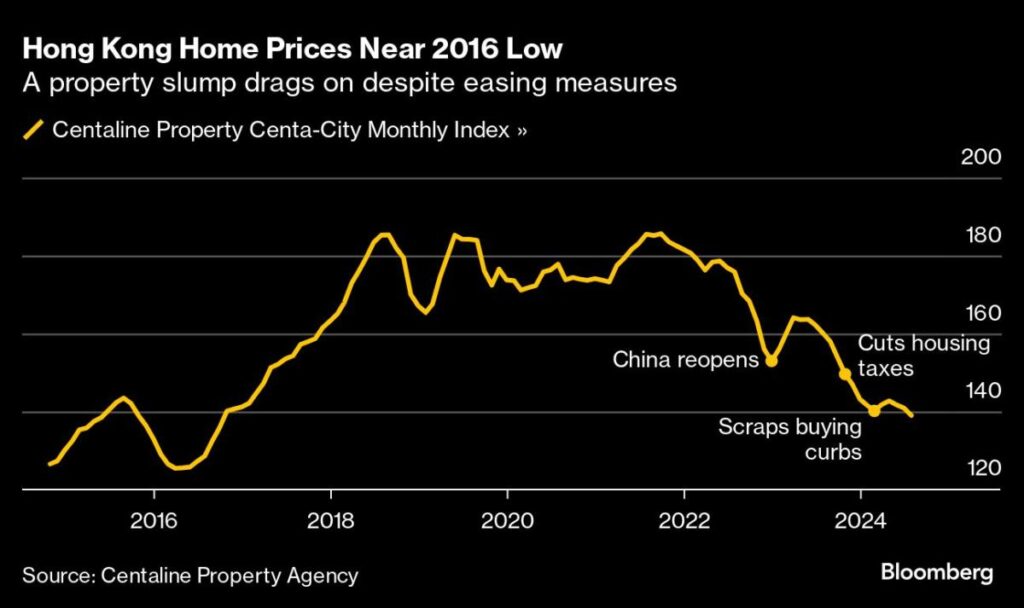Hong Kong’s Chief Executive John Lee is set to address the Legislative Council on Wednesday, focusing on a policy agenda aimed at revitalizing the city’s economy. This marks his third annual speech, themed “Reform for Enhancing Development and Building Our Future Together.” Lee’s primary objective is to enhance the nearly $400 billion economy of Hong Kong. This comes after the implementation of the national security law, which has drawn criticism from Western governments for stifling free speech in the financial hub. Despite these challenges, Hong Kong’s economy has shown some growth in the first half of the year, falling within the government’s forecast range of 2.5% to 3.5%, bolstered by strong exports.
However, the city’s economic outlook remains clouded by several factors, including declining real estate prices and sluggish consumer spending, which accounts for over half of economic growth. To counteract these trends and improve its status as a desirable destination for nightlife and dining, the government is considering reducing taxes on spirits. Lowering the liquor tax could rekindle sales for restaurants and retailers that have faced declining consumption in recent months, providing a much-needed boost to the local economy. The ongoing slowdown in China and geopolitical uncertainties also pose challenges for Hong Kong’s growth, although recent stimulus measures by Beijing, along with potential interest-rate cuts from the US Federal Reserve, may offer some respite.
In an effort to support the real estate market, the Lee administration has lifted many restrictions on home purchases and reduced property transaction taxes over the past year. These initiatives initially resulted in a modest rebound in property prices; however, recent trends indicate that prices have resumed their decline to the lowest levels since 2016. Furthermore, a rise in bankruptcies has raised concerns about the financial health of local businesses. Retail sales and tourist arrivals continue to lag behind pre-pandemic levels, further illustrating the challenges faced by the city as it strives to recover from the impact of stringent pandemic protocols and political unrest.
To attract more investment, Lee’s administration is reportedly planning a revamp of the HK$2 billion ($258 million) Innovation and Technology Venture Fund. This initiative aims to foster growth in the technology sector and potentially rejuvenate the economy by attracting venture capital. Additionally, the government is expected to announce measures that focus on diversifying the economic base of Hong Kong, with particular attention on developing the medical and biotechnology sectors. By expanding into these emerging fields, the authorities hope to reduce reliance on traditional industries that may be struggling.
Overall, Lee’s policy address is anticipated to reflect a comprehensive strategy to rejuvenate Hong Kong’s economy amid ongoing challenges. By implementing tax cuts, enhancing investment incentives, and promoting diversification, the administration aims to create a more vibrant economic landscape. This approach not only seeks to recover losses incurred during the pandemic but also aims to position Hong Kong as a resilient and competitive player on the global stage, capable of attracting investment and fostering innovation.
As Hong Kong navigates these multifaceted challenges, the upcoming address will serve as a critical indicator of how the government plans to harness available resources and initiatives to secure a sustainable economic future. The emphasis on reforms and enhancement of development reflects a proactive approach in addressing the complex issues facing the city, and the international community will closely monitor the outcomes of these policies in the months ahead.

